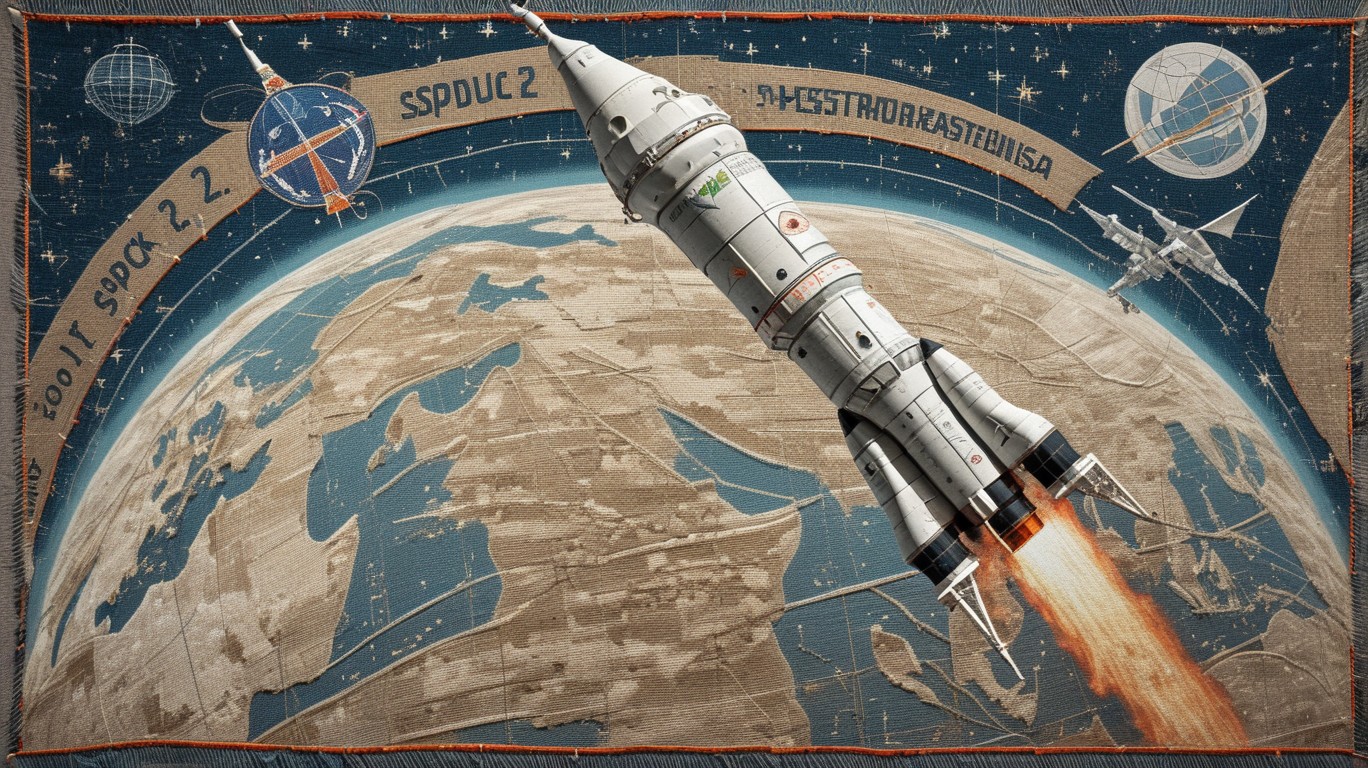
Russia doth launcheth from the Plesetsk Cosmodrome, a mighty Soyuz-2 rocket carrying the Kosmos 2576 satellite. The United States Space Command accuseth it of being an anti-satellite weapon, threatening other satellites and orbiting with one operated by the National Reconnaissance Office. (Al Jazeera)
In the ye olde year of our Lord two thousand four hundred and twenty-four, on a day most fair and fine - Wednes-day, May twenty-second to be precise - a great and mighty rocket did launch forth from the Plesetsk Cosmodrome in the heart of Mother Russia. This wondrous machine was none other than the Soyuz-2, a fearsome beast of metal and fire that bore within its fiery belly the Kosmos 2576 satellite, a device of mysterious purpose and origin.
Yet all was not well in this great day of launchings. For lo and behold, across the vast expanse of orbiting space, the United States Space Command did issue forth an accusation most dire against our Russian brethren. They accused Russia's Soyuz-2 rocket of being naught but a weapon of mass destruction, an anti-satellite device designed to threaten and harm other satellites that orbited in the heavens.
The United States Space Command, those noble guardians of celestial freedom, further declared that this Kosmos 2576 satellite was none other than a creation of their own National Reconnaissance Office. Such an accusation was grave indeed, for it implied a most sinister intent behind Russia's launch.
But what say the experts in this matter? Are these accusations just, or mere folly and ignorance? Let us turn now to those learned individuals who may help us unravel the truth behind these dark and troubling allegations.